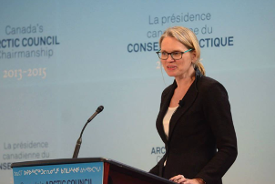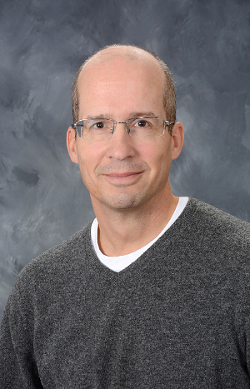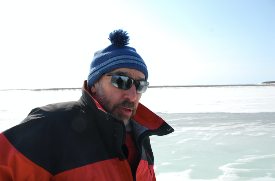International Arctic Science Committee (IASC)
International Arctic Science Committee (IASC)
Polar Knowledge Canada (POLAR) is Canada’s member organization of the International Arctic Science Committee (IASC). IASC encourages and facilitates international cooperation and supports leading-edge research to foster a greater scientific understanding of the Arctic region and its role in the Earth system. POLAR appoints Canadian representatives on IASC’s Council and Working Groups. For further information about IASC, please visit: http://www.iasc.info/
Canada’s National IASC Delegate: Dr. Wayne Pollard
Contact: Wayne.pollard@mcgill.ca
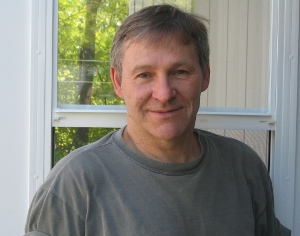
Atmosphere Working Group: Prof. James Drummond and Prof. Kent Moore
Contact: james.drummond@dal.ca and gwk.moore@utoronto.ca
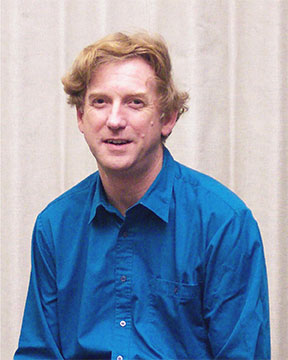
Prof. James R. Drummond, M.A., D.Phil. FRSC graduated from the University of Oxford in England and was a faculty member of the Department of Physics, Toronto University for over 25 years and now holds a Canada Research Chair in Remote Sounding of Atmospheres in the Department of Physics and Atmospheric Science at Dalhousie University. He has been involved in major atmospheric science projects for over 40 years. His research involves problems of measuring constituents in the atmosphere that are involved in pollution and climate change and he has led or participated in many major measurement efforts during his career. He is the currently the Principal Investigator for the Measurements Of Pollution in The Troposphere (MOPITT) instrument on the Terra satellite; a Co-Investigator for the instruments on the Canadian SciSat satellite; Principal Investigator of the Polar Environment Atmospheric Research Laboratory (PEARL) at Eureka, Nunavut; the founding president of the Canadian Network of Northern Research Operators (CNNRO); the Chair of the Forum of Arctic Research Operators (FARO); and the Canadian representative to several International organisations and participates in several national committees. He is the author or co-author of over 170 scientific papers.
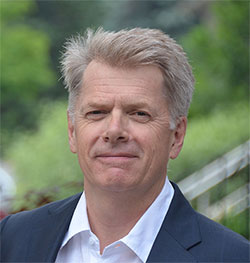
Prof. Kent Moore has a Ph.D. in Geophysical Fluid Dynamics from Princeton University. He is currently a Professor of Physics at the University of Toronto. Professor Moore’s research interests include: theoretical geophysical fluid dynamics, mesoscale meteorology, polar meteorology, high latitude air-sea-ice interactions, physical oceanography, paleoclimatology and high altitude physiology. Professor Moore has published over 150 research papers in the high quality peer-reviewed literature. Among the journals that Professor Moore has published in include: Science, Nature, Nature Climate Change, Nature Communications, the New England Journal of Medicine, the Journal of Climate, the Journal of Hydrometeorology, Geophysical Research Letters, Progress in Oceanography, Deep Sea Research and the Quarterly Journal of the Royal Meteorological Society. In addition, Professor Moore has played a leadership role in a number of national and international research collaborations including the Canadian Atlantic Storms Program, the Beaufort and Arctic Storms Experiment, the Canadian GEWEX (Global Energy and Water Cycle Experiment) Program, the Labrador Sea Deep Ocean Convection Experiment, the Greenland Flow Distortion Experiment, the Storms of the Arctic Experiment and the Iceland-Greenland Sea Project. Professor Moore has also trained over 30 undergraduate students, graduate students and post-doctoral fellows who have gone onto varied careers in private industry, government and academe. Professor Moore has received funding from a variety of sources including the Natural Sciences and Engineering Research Council of Canada, Environment Canada, Fisheries and Oceans Canada, the Canadian Foundation for Climate and Atmospheric Sciences, External Affairs Canada, the National Science Foundation and the Office of Naval Research.
Cryosphere Working Group: Dr. Shawn Marshall
Contact: marshals@ucalgary.ca
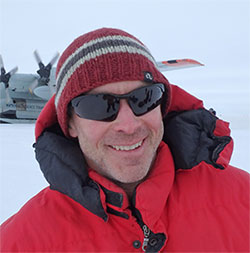
Marine Working Group: Dr. John C. Fyfe and Dr. Christine Michel
Contact: John.Fyfe@canada.ca and Christine.Michel@dfo-mpo.gc.ca
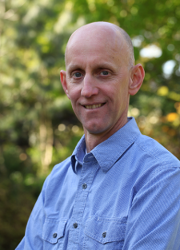
Dr. Christine Michel biography to come.
Social and Human Working Group: Dr. Susan Chatwood and Dr. David Natcher
Contact: Susan.chatwood@ichr.ca and david.natcher@usask.ca
Dr. Susan Chatwood is an Associate Professor in the School of Public Health at the University of Alberta, and is a recipient of the McCalla Professorship at the University of Alberta. She also holds affiliations as an Assistant Professor in the Dalla Lana School of Public Health and Institute for Health Policy Management and Evaluation at the University of Toronto. She has a Bachelor of Science in Nursing from University of British Columbia, a Masters in Epidemiology from McGill University and PhD in Medical Science from the University of Toronto. Susan was a scholar in the Fulbright Arctic Initiative, and is the Past President of the Canadian Society for Circumpolar Health. Susan has spent most of her career in remote and northern communities, working in the clinical setting, public health and research. Her research interests include circumpolar health systems stewardship and performance, and the synthesis of knowledge that promotes broader understandings of health systems and wellness in the Arctic.
Dr. David Natcher is a Professor in the Department of Agricultural and Resource Economics at the University of Saskatchewan. He has graduate degrees from the University of Alaska Fairbanks (Arctic and Northern Studies 1996) and the University of Alberta (Anthropology 1999). Prior to joining the University of Saskatchewan, Dr. Natcher held faculty appointments at the University of Alaska Anchorage and Memorial University of Newfoundland. While at Memorial University, he held a Tier II Canada Research Chair in Aboriginal Studies. Dr. Natcher’s research is in economic and environmental Anthropology where he explores the changing northern economy, and the strategies employed by Indigenous and other resource dependent communities to deal effectively with social, political, economic and environmental change. Dr. Natcher currently holds a Centennial Research Chair in the Global Institute for Food Security and represents Canada on the Arctic Council’s Sustainable Development Working Group’s (SDWG) Social, Economic and Cultural Expert Group (SECEG).
Terrestrial Working Group: Dr. Philip Marsh and Dr. Emily Jenkins
Contact: pmarsh@wlu.ca and ejj266@mail.usask.c
Dr. Philip Marsh is a Professor at Wilfrid Laurier University and holds a Canada Research Chair in Cold Regions Water Science. He began his Arctic studies at McMaster University in 1975 where his graduate research focussed on the hydrology of the Canadian High Arctic. In 1983 he moved to the National Hydrology Research Centre where his research concentrated on river ice of the Mackenzie River and the hydrology and ecology of the Mackenzie Delta. In 1991 he and his colleagues began research in the Trail Valley Creek and Havikpak Creek research watersheds in the uplands to the east of the Mackenzie Delta. This research program has continued to present and has focussed on the influence of the severe climate and permafrost on snow cover, energy and water fluxes over heterogeneous surfaces, snowmelt, melt metamorphism, runoff, evaporation, streamflow, ice covers, and lake levels. This work has aimed at improving our understanding of, and our ability to model, the hydrologic conditions in the cold regions. He has been involved in major international research programs in the Arctic and is currently the Principal Investigator of the Changing Arctic Network and the Director of the Trail Valley Creek Research Watershed. He has been the President of the Canadian Geophysical Union and received the J. Tuzo Wilson Medal, Canadian Geophysical Union in 2014.
Dr. Emily Jenkins (PhD, DVM, BSc Honours Zoology) is currently an Associate Professor, Department of Veterinary Microbiology, Western College of Veterinary Medicine at the University of Saskatchewan, Saskatoon, Canada, and previously served as Wildlife Disease Specialist for the Government of Canada. She is an associate member of the School of Public Health and an affiliate of the Canadian Wildlife Health Cooperative. She teaches veterinary parasitology, emergency management for public health, and One Health to veterinary and graduate students. As head of the Zoonotic Parasite Research Unit, she has an active research program and currently supervises PhD and veterinary undergraduate students. Her research takes a One Health approach to diseases that transmit among animals and people via food, water, vectors, and the environment in the Canadian North. She is currently chair of the Wildlife Health Research Fund and the Northern Studies Committee at the University of Saskatchewan, serves as Associate Editor of the International Journal for Parasitology - Parasites and Wildlife and on the Editorial Advisory Board of Food and Waterborne Parasitology, and Canadian representative to the Arctic Surveillance International Leadership Visitor Program and the Terrestrial Working Group of the International Arctic Scientific Committee.
Arctic Data Committee Representative: Dr. Julie Friddell
Contact: Julie.friddell@uwaterloo.ca
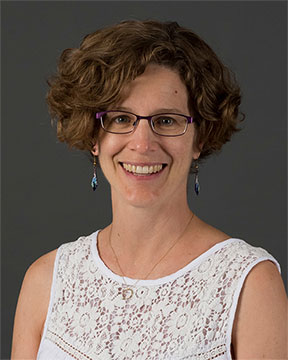
Page details
- Date modified:
